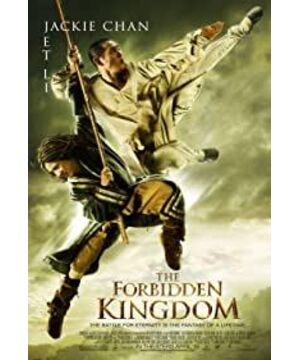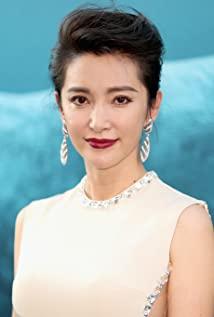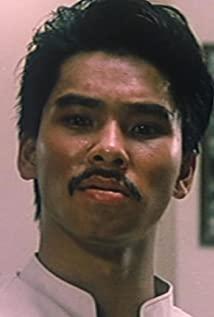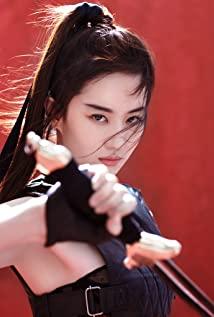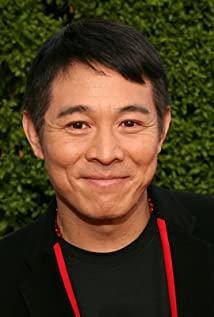One
[The image of the two of them in the hearts of the Chinese people is too deep-rooted. If everyone has a Hamlet in their heart, then in the face of Jackie Chan and Jet Li, everyone has a Yuan Heping in their heart. ]
May 9, 2005 was a day that made tens of thousands of movie fans eager to see: "Star Wars Episode 3: Revenge of the Sith" was released as the finale of the "Star Wars" series. Such a long name cannot be abbreviated in any way, because every word contains the long history of the film industry behind the screen and the emotional precipitation of generations of fans. Someone once teased director George Lucas before the film was released, saying that even if this final episode was a two-hour blue screen, someone would pay for tickets to go to the theater. Here, it is not only the film itself that mobilizes the audience's appetite and passion for watching, but the "movie" in the audience's heart, a film that exists as a certain complex.
But today, three years later, another deeper complex has been mobilized, but the result is intriguing. Lucas’ compatriots were so addicted, even some foreign fans found Jet Li’s Monkey King appearance quite a bit like John Nedap in "Pirates of the Caribbean", exclaiming and exclaiming; while domestic fans booed. For Kung Fu, this is not a closed film and television text palace built by one director of five films in 27 years, but a cultural frontier developed by countless film workers over decades of painstaking efforts. Regardless of Jackie Chan or Jet Li, on their arduous roads to success, relying on their painstaking efforts and squandering countless blood and sweat, they finally honed their own style of kung fu films and martial arts films to establish their own video image system. No one can stop the audience's brainstorming associations when they see the two superstars playing tricks-Huang Feihong and the Hong Kong police, Jingwuquan and Drunkenquan...The image of the two of them in the hearts of the world is too deep-rooted, if you say everyone There is Hamlet in their hearts, so facing Jackie Chan and Jet Li, everyone has Yuan Heping in their hearts. The problem is that Yuan Heping now plays for Hollywood, a mature film industry tycoon established in the United States. In a sense, for kung fu fans in any corner of the world, "Kung Fu King" is an explanation of the "kung fu complex" of the film industry to people.
Two
[Can we make a substitution that may not be very appropriate: Jason-Dorothy; Lu Yan-Scarecrow; Silent Monk & Swallow-Tin Man & Lion; General Yujiang-Eastern Witch; White Hair Witch-Flying Monkey]
When Lu Yan said to the confused Jason: "Because you are not listening", I really felt like I could say "Toto, I have a feeling like Dorothy, we are no longer watching Kung Fu movies." For Jason, China in his dream is a "different place"; for Chinese fans, this film is a "different place"-Americans bypassed the "image system" familiar to the audience, but took the treasure Pressed on the inviting magic theme. The opening ceremony of Kung Fu movie posters also focused on the scope of the entire Hong Kong and Taiwan Kung Fu movie, deliberately avoiding the screen traces of the two superstars. However, in such a newly developed Kung Fu perspective, the role of "Kung Fu" is nothing more than an element that is more exciting than CGI special effects (how many senior kung fu fans have long disdaind the lifeless fighting scenes displayed by special effects. What you want is real fights and fights, that is, real kung fu, that is really exciting.) Like any other "made in Hollywood", the "Kung Fu" scene in "Kung Fu King" is just an attraction. What to watch for. No matter the inn, the screen, the pipa, or even the Chinese proverbs with poor translations in the dialogue, the accumulation of Chinese elements only constitutes the dreamland of the American boy Jason. Perhaps all cultural exchanges have to start from the most material level, but this does not prevent us from leaning over to see what kind of deep meaning is hidden behind these cultural symbols.
Many people think that the mantle of "Gong" is taken from "Journey to the West". In the author's opinion, this is really just an illusion, at least a superficial impression. It is better to say that it coincides with the 1939 movie "The Wizard of Oz". That colorful musical is almost the "childhood" complex of all Americans. The theme song "over the rainbow" that was almost cut off in the film was the first of the 100 best film songs in American film history selected by AFI (American Film Institute) in June 2004! Until now, "Green" is still a must-show movie every Christmas. Therefore, the obvious trace of "Green" in "Gong" is hard to say whether it was intentional, or it happened to reflect this cultural and psychological imprint, or the American fascination with the "Return to Kansas" story. So can we do an interesting role replacement: Jason-Dorothy (frustrated in reality, accidentally fell into the "foreign" country, so he went through all the dangers in order to go home); Lu Yan-Scarecrow ( The first partner the protagonist met in advance, Dorothy said to the Scarecrow at the end of the movie "Green": "The one I can't bear the most is you"; and when Lu Yan's life fell on the line, Jason said in tears: "But I can't bear you. "I even want to exchange the golden cudgel for the eternal medicine); Silent Monk & Swallow-Tin Man & Lion; General Yujiang—Eastern Witch; White-haired Witch—Flying Monkey Immortality; "eliminating disasters" for others is to get people "money"); Jade Emperor-Master Oz. If that golden hoop can bring Jason back to Boston, its function and that pair of magical red shoes correspond perfectly. Although this "modern version" of "The Wizard of Oz" still has many discrepancies from the "original", the development of the plot and the ending are the same: the prerequisite for the Tang monk and apprentice to obtain the scriptures and return to the Tang Dynasty in "Journey to the West" It is through hardships to become a benevolent, and both "Green" and "Gong" have a "task" to be completed before returning home-to defeat an evil force (Master Oz said, "You must get rid of the Eastern Witch before agreeing to your request." "; Lu Yan told Jason: "Return this stick to the Monkey King and defeat General Yujiang before you can go home.")-In other words, in this scenario, the "adventure" is In exchange for the protagonist's "going home" trading conditions, rather than a test of the character's quality. Chinese novels promote the calling and shaping of individuals by a higher magical power. Individuals fully identify with this magical power and do everything possible according to its requirements. The ultimate recognition of it is the highest value of individual action and life. Western culture emphasizes the growth and perfection of individuals themselves. Therefore, after Jason listened to the story told by Lu Yan in the tavern, the noble task of returning the golden hoop to repay the world is no more important than letting him go home; and when Lu Yan’s life is dying, in Jason’s eyes , Saving the lives of friends (also good teachers) is undoubtedly the most urgent. Therefore, judging from the ending of the film, whether it is Jason or Dorothy, what they have gained is a new understanding and love of life, not the recognition of an "other".
Therefore, oriental symbols such as "Journey to the West" only play a role in creating an atmosphere of "different land", and almost all of their meanings have been lost. "Poppy Field" has similar plots in terms of plot arrangement). But such a somewhat nondescript "Wizard of Oz" story is a familiar routine and lingering complex of American audiences. No wonder the headlines of major foreign official websites and media have not seen any doubts about the plot, but Chinese audiences. Broken about it.
Three
[In other words, in the eyes of Westerners, Easterners or Easterners are safe only under the status of "other". ]
Back then, the director of "Green" deliberately added scarecrow, tin man, lion, witch, and the corresponding roles of Master Oz in real life in the character arrangement. This is at least to explain that such a "different land" is Dorothy imagined it based on reality. Through a big dream, those weird elves gave Dorothy a deeper understanding of the people around him, no longer planning to run away from home, but chanting the phrase "no place" that has become a "national servant" "There is no place like home (There is no place like home)" opened a bright smile.
In "Gong", after returning to reality, Jason "inexplicably" practiced a kung fu to punish evil and promote good, naturally showing a bright smile after the Eastern beauty strikes up a conversation. There is one difference between him and Dorothy's "exotic land"-Oz's Wonderland is the original creation of Frank, the author of "The Wizard of Oz", and Jason's dream is almost in mythology, especially in the Chinese Kung Fu movies he has seen. The epitome of China is the imagination of the director or Hollywood. Here, the romance, mystery, and even sinisterness of the East are established in an imaginary space, which finally establishes the sense of identity and superiority of the Westerner-Jason (in his dream, he finally liberated the Monkey King and brought the world The person who came to peace was his obscure American boy). This is almost the most direct and obvious manifestation of Said's "Orientalism" spirit. In the introduction of "Oriental Studies", Said clarified his starting point: "The East is not an inert natural existence". Like the "West", it is also "built by man." Said believes that the development of Orientalism embodies a "textual attitude" (textual attitude). It means, "What Orientalism discourse relies on is not empirical evidence or experience, but the image of the East and the Oriental people derived from other books." Can we here based on Said? Does his theory propose a "imaging concept"? It does not find the basis from "empirical evidence or experience", but "the image of the East and the Oriental people derived from other'movies'." For Western audiences, the dazzling Hong Kong and Taiwan Kung Fu movie posters in the movie titles and the various Kung Fu movies they represent are "derived" from the mass media today as the image of the Oriental—the Chinese? The reason for creating these images is to "create the East as the "other" of the West: a place to highlight one's own identity." As Mr. Zhou Ning wrote in "Whimsical-Looking at China in a Diorama" Said: "The image of China in the West is always the West. Every repetition of the image of China in the West in the 20th century has a profound motivation within Western culture.... The Utopia and ideological poles of the Western image of China in Western society. Fiction and imagination are inevitable, because it is a social imagination, an expression of the cultural other; truth and truth cannot be pursued, because it does not reflect the reality of China, but only expresses the cultural psychology of the West ."
It is undeniable that there has always been a question of "Who am I?" in Western culture. This kind of thinking about individual existence has almost become an important driving force for the development of Western thought and culture. Just as there is no absolute "static" in physics, any "static" must be measured by the reference object. In this way, we will have a deeper understanding of the "Oriental" meaning of "Gong". The most obvious of these is the arrangement of female characters, especially Sparrow. In fact, from the English point of view, Sparrow is more appropriate to translate it into "maj", but whether it is in the mouth of the white-haired witch or in Chinese subtitles, she is called "swallow". Which one is the name that belongs to Sparrow? From a geographical point of view, we should respect the Chinese concept, that is, "swallows". Moreover, our Chinese culture does not like to use the metaphor of "sparrows" or "larks" like France, but is more accustomed to using "swallows". In this way, the "swallow" in the context of the East has become a Westerner, or to be precise, the Sparrow in the eyes of the Americans, or the Gold Sparrow "golden sparrow". This at least caused a degraded misunderstanding in appearance. Secondly, and most thought-provoking, as the positive female characters in the play (the white-haired witch is a contradiction, and the two abducted village girls as women are the product of "male power-fantasy power-fantasy" "Page 207), Yanzi calls himself "She." This unconventional claim can be understood as the creator's rhetorical refinement, in order to reflect the character's initiative to hide his identity for revenge. This arrangement has the effect of shaping the character of the characters. Why is it not reflected in Chinese in both the dubbing and the subtitles? Just to avoid hypocrisy? From the perspective of "Orientalism", this kind of self-appellation seems to have the intention A more reasonable explanation is reflected in the "other" situation of the Oriental beauty in the eyes of Westerners to reflect their own superiority. Because here we have to consider that all the Orientals in the play are fantasised by Jason, then this A conjecture about the self-title of a positive oriental woman naturally has the subjective sentiment of a Westerner like Jason-the only oriental beauty must obey the arrangement of the "West" even if she is not an enemy. Later she became a hero. After Senyin coincidentally avenged the Yanzi, such an oriental girl "produced" subjectivity for the first time in the eager gaze of Westerners, and said "I" in the first person, and it was not necessary in a common sense. Use the subject "Thank you" (I thank you you). At this time, we can see that the initiative of the "Oriental" is given by the Westerner, and the first priority for an individual to obtain the "self" identity is to express gratitude for such a "salvation." But the tragedy of this "other" status in the film lies in the fact that he lost his life as soon as he "ridden" the constraints of the "other" status. In other words, in the eyes of Westerners, Easterners or Easterners are safe only under the status conferred by the "other". The image of China in the West is only a projection wall of its own culture, only the cultural other in their imagination.
I dare not say that the above analysis reflects the true intentions of the film creators, but at least through the perspective of cultural criticism, I can see the Western complex that it may convey, and provide an indelible significance for such a film with indelible significance in the history of kung fu movies. This kind of interpretation is possible.
No matter how beautiful Kung Fu is, it is only embellishment, as if Oz's Wonderland is no matter how beautiful, it is finally going to go home. Jason returned to his home after a period of growing up "Kung Fu" training. What about our Kung Fu movies? ——I have already played the country and entered Hollywood, but when do you plan to go home?
View more about The Forbidden Kingdom reviews


